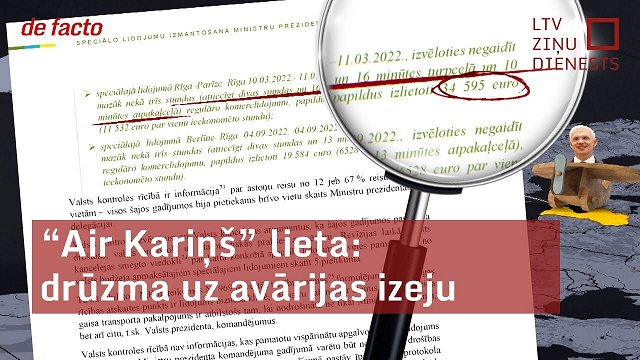State control has recognized that, in general, the conditions for assessing the disciplinary and civil liability of employees in the State administration have been established. It is true that these conditions depend on the type of employment relationship, and the framework for the assessment of liability is fragmented: it is not always possible to ascertain the circumstances of the infringement in a timely and complete manner and to take decisions to enforce the responsibility of public administration personnel and to determine what needs to be done to improve the internal control environment.
In practice, the distinction between the status of official and employee positions does not always correspond to the regulatory framework, and the boundaries between these posts and types of employment have been blurred. These are the main findings of the audit, in which State Audit Office assessed whether the conditions for assessing the responsibility of public administration workers have been established and the work done responsibly.
"Trust in public administration is linked to citizens' perceptions of the ability of employees in public administration to take responsibility, to assess and recognize errors where they have been made,
"as well as perceptions of individual responsibility for the quality of work, the conformity of decisions and actions taken with the laws, regulations, and public interests. It is therefore important that, in situations where offenses are identified in public administration, the institution should act consistently: the infringements are assessed comprehensively and objectively, a fair decision is taken, a proportionate penalty is imposed and the institution's internal control environment is improved as needed," said Kristīne Jaunzeme, Member of the Council of State Audit.
The one-month period specified in the labor law for the assessment of disciplinary action may be insufficient for a qualitative investigation of the case and the application of the penalty, particularly in complex and voluminous cases related to the use of financial resources of a public person or handling of property, as stated by the auditor.
Moreover, this situation has been known for a long time, but the shortcomings have still not been addressed and the legal framework has not been improved.
"The assessment of disciplinary action should not be time-bound, in order to assess all the circumstances involved in the infringement and to apply the penalty within one month," Jaunzeme said.
In general, the authorities shall assess disciplinary infringements, but not in all cases. During the period 2020-2022, a total of 4564 disciplinary infringements have been evaluated by 167 direct national regulatory authorities, with a disciplinary sanction of 3954 cases.
However, responsibility has not been assessed in all cases of non-compliance with projects co-financed by the EU Structural Funds and the Cohesion Fund, resulting in additional expenditure for the national budget.
In total, in 17 out of 33 cases in the audit sample, the reasons for non-compliance and behavior have not been evaluated.
Regulatory enactments do not prescribe procedures for the assessment of the disciplinary responsibility of the head of the institutions. In such cases, ad hoc solutions are needed for the assessment of disciplinary responsibility to “exit” outside the institution, and be entrusted to an independent evaluation commission.
As regards the framework for civil liability, auditors have identified shortcomings and made proposals to improve regulation: (1) to make the time limits sufficient to assess liability; (2) setting a minimum threshold for raising requirements in order to effectively deal with public resources; (3) evaluating and eliminating differences regarding prosecutor and investigator civil liability, as they perform similar functions.
The audit gives five recommendations to the State Chancery and three to the Cabinet. The State Chancery must act on these before January 2027.




























